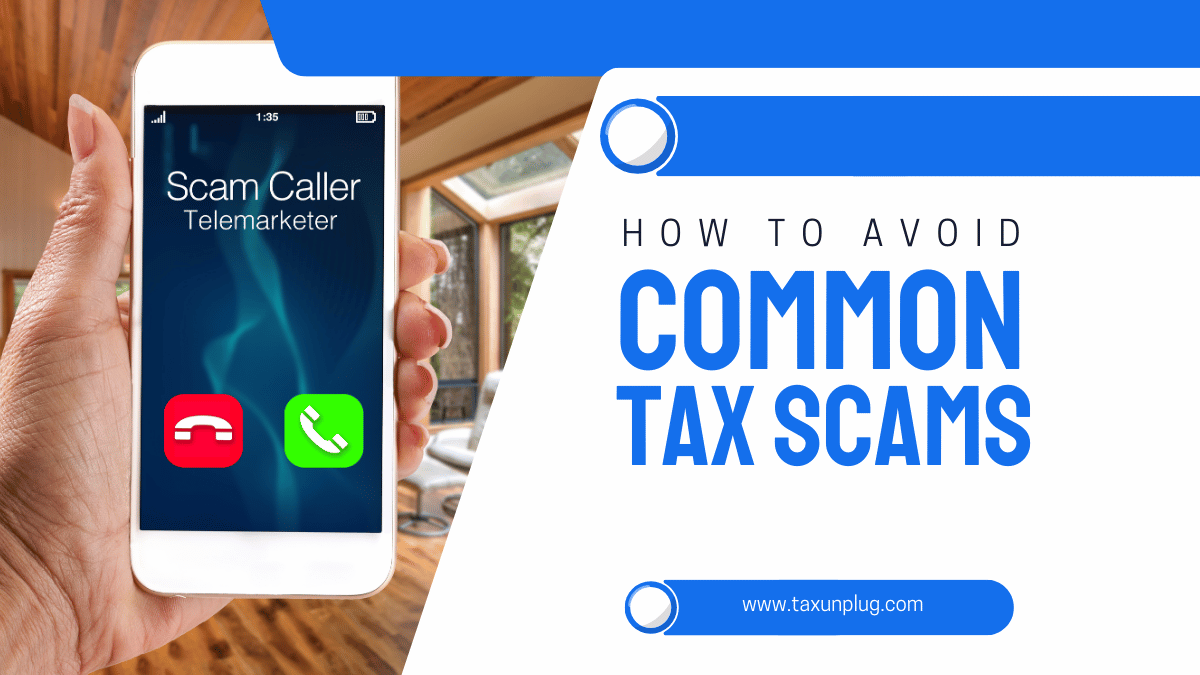Common Tax Scams
Tax scams are becoming increasingly sophisticated, and many people fall victim to these traps every year. Scammers often impersonate tax authorities or create fake tax-related websites to steal your personal and financial information. Staying informed and aware of common tactics can protect you from becoming a victim.
Here’s a guide on how to identify and avoid common tax scams, with tips from TaxUnplug to keep your information safe.
1. Recognize Phishing Scams

Scammers frequently use phishing emails and text messages to target taxpayers. These messages often mimic official government communications, requesting personal or financial data. Be aware that legitimate tax agencies never ask for sensitive information via email or text.
What to do:
- Avoid clicking on links in suspicious emails or texts.
- Report phishing attempts to the relevant authorities.
- Use trusted websites like TaxUnplug to check for the latest scam alerts.
2. Beware of Phone Scams

Phone calls from people pretending to be from the tax office and demanding urgent payment are a classic hoax. These scammers frequently employ frightening rhetoric, claiming you will be arrested or face legal action if you do not pay soon away.
What to do:
- Hang up if you receive a threatening call.
- Verify the caller’s identity by contacting the tax office directly.
- Never provide payment over the phone.
3. Fake Tax Return Preparers

Scammers sometimes pose as tax professionals, offering to file your taxes for you but then stealing your personal information. They might also promise large refunds to lure you in.
What to do:
- Use a reputable tax preparer. Check credentials and reviews before hiring.
- Avoid anyone promising unusually high refunds.
- Trust platforms like TaxUnplug to guide you to reliable tax services.
4. Social Media Scams

Fraudsters have also turned to social media, posing as tax officials or creating fake advertisements for tax-related services. They often claim to help you with tax refunds or debt relief, but their real aim is to steal your data.
What to do:
- Be cautious of unsolicited tax offers on social media.
- Avoid sharing personal details on these platforms.
- Stick to trusted sources like TaxUnplug for verified tax advice.
5. Stay Updated on Tax Scams
Scammers are always evolving their methods. Keeping up-to-date with the latest tax scams can help you avoid them. Use resources like TaxUnplug to stay informed and protect your personal information.
Conclusion
Tax season doesn’t have to be stressful if you stay informed and aware of common scams. By following the tips above and using trusted resources like TaxUnplug, you can keep your data safe and avoid falling prey to fraudsters.

